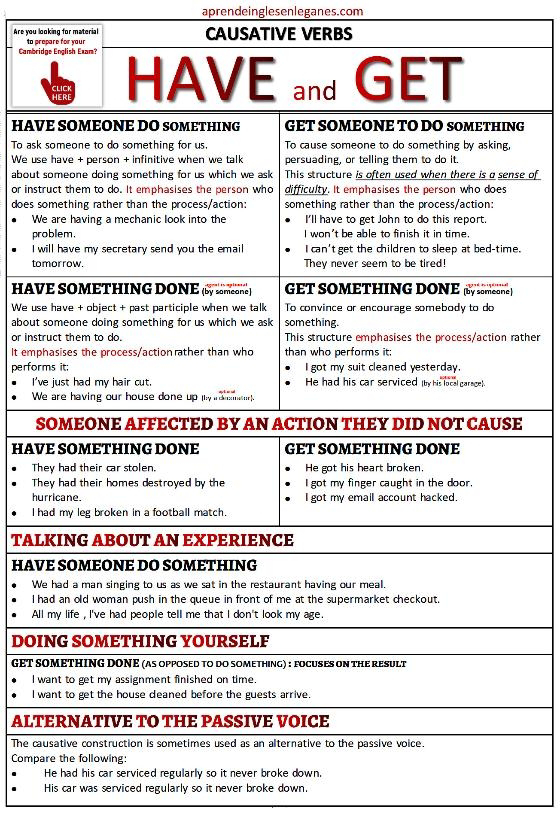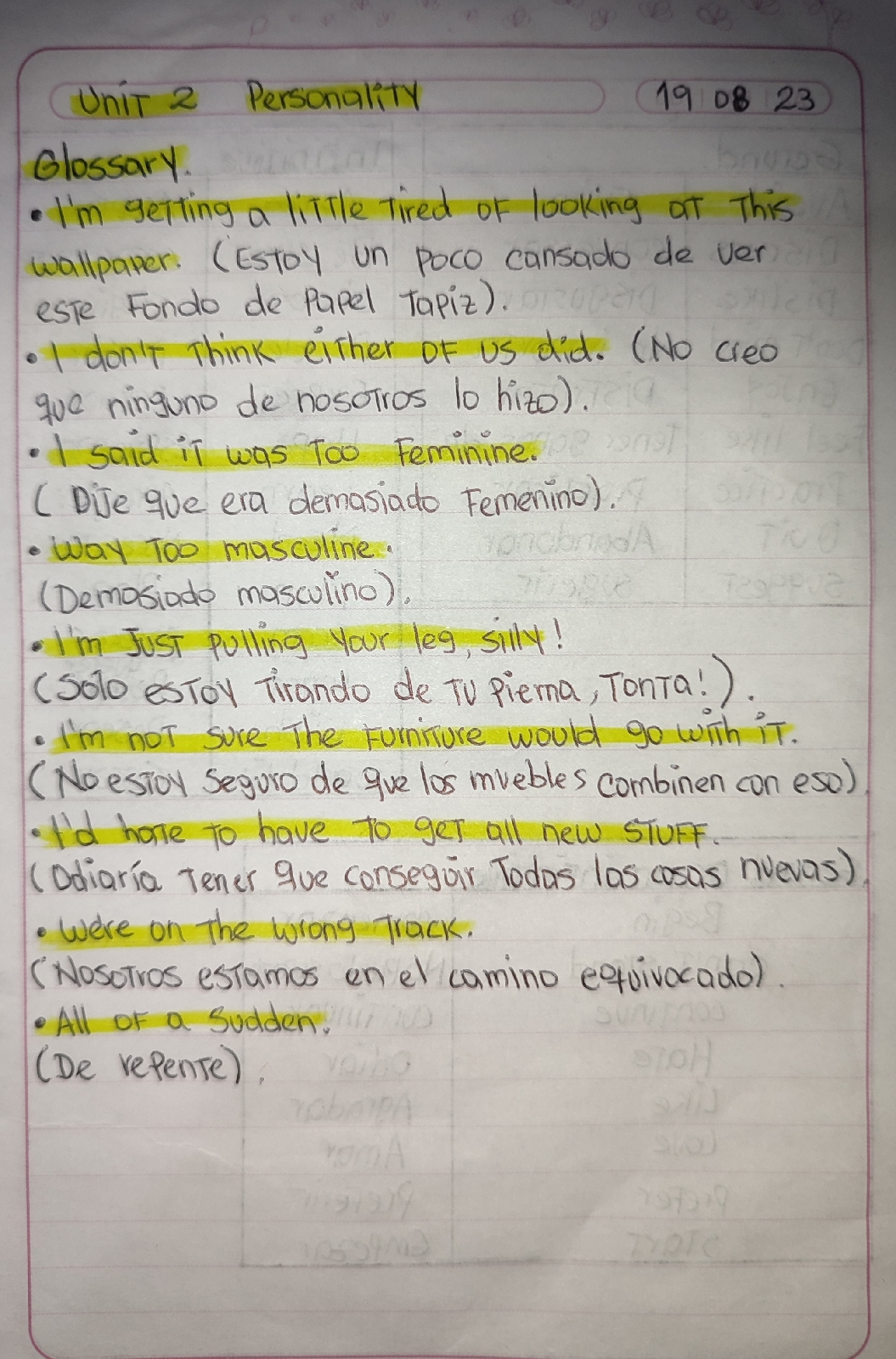CUT 2
Тоpіс 1
Period 2
Causative verbs - case 1 (Mandar a)
(Structure = pronoun+ causative- obtect+ past participle)
Examples
• I had my car washed (lavado)
• I had my uniform ironed (planchado)
• I had my windows cleaned (limpiado)
In a sense, using a causative verbs is similar to using a passive. The important thing is that
The house is now clean.
Who did the cleaning
Have something done (have + object + post participle)
We usually use have something done when we are talking about playing someone to do Something for us. it's often used for services.
• I had my car washed
• John will have his house Painted
Have us get formal- informal
Case 2 = Subject +causative Person+ infinitive)
Have someone do someting (have Peson infitinive).
Example=
•I had the electrician look at my broken light
• The doctor will have the nurse call the parents
• The teacher had the students write the answers on the whiteboard .
Translate These sentences according To The structure in case 2.
• Mi mamá mandó a Luis a lavar la nevera
My mother had Louis wash the fridge
•El Jefé mandará al trabajador a limpiar la
Ventana
The boss will get the worker to wash the windows
• Mi papá me manda a repasar la lección todos los diás
My father has me review the lesson everidat
She gets her son to do his homework by promising him ice cream when he's finished
Ella hace que su hijo haga la tarea prometiéndole a el cuando termine
I got the cleaner to clean under the cupboards. Yo mande al empleado que limpiara debajo de la lacena.
The causative verbs are useful for us and are phrases in which the subject makes another person take charge of doing something, either because they pay them, ask them to do it, convince them or force them. The most important causative structure is to have/get something done, which is also a way of expressing the passive voice.



